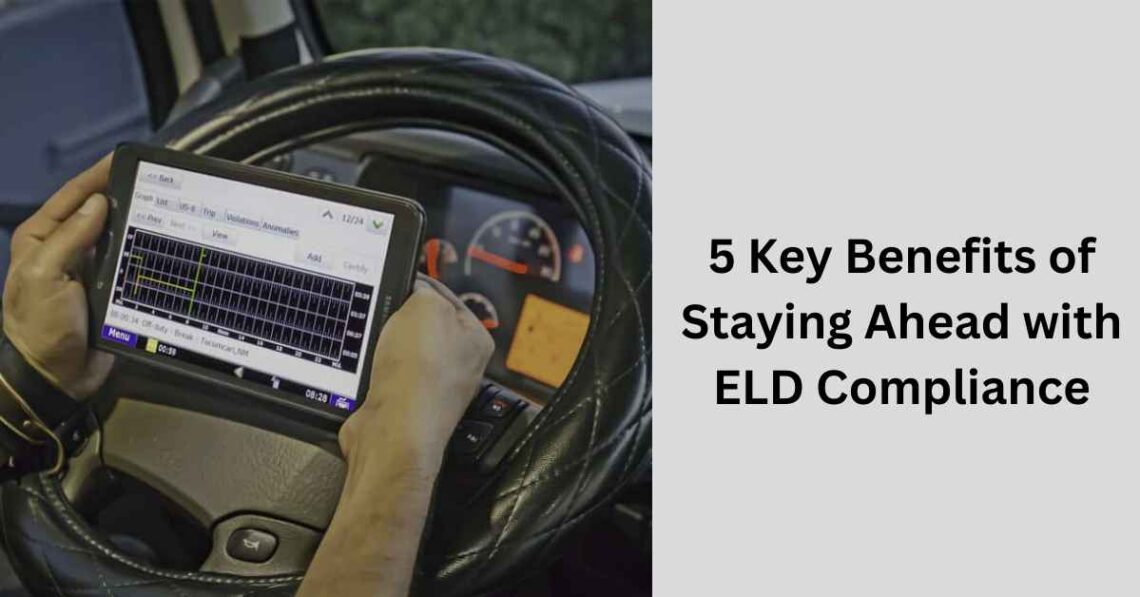
5 Key Benefits of Staying Ahead with ELD Compliance In 2023
In today’s interconnected digital world, the transportation sector has been undergoing transformative changes, particularly when it comes to regulations and compliance. One term that has become increasingly relevant in this context is ELD compliance.
But what is it all about, and why should fleet managers or transport businesses care? ELD, or Electronic Logging Device, compliance refers to the mandate requiring commercial drivers to use electronic systems to log their hours of service, ensuring both safety and transparency in operations.
Now, if someone is pondering over whether to adapt to this compliance or not, here are five compelling reasons that might sway their decision.
Safety First: Protecting Drivers and the Public
At the heart of ELD compliance lies the primary objective: safety. Before ELDs, drivers logged their hours manually, leaving room for inaccuracies and even intentional misrepresentations. With electronic logging, there’s an accurate reflection of a driver’s hours on the road.
What does this mean? Fewer fatigued drivers, reduced chances of accidents, and safer roads for everyone. It’s like replacing an old, flickering streetlight with a bright LED, illuminating the path clearer than ever.
Operational Transparency: No More Guesswork
Remember those moments when you wish you had a clearer picture of a situation? ELD compliance brings that clarity to fleet operations. With accurate electronic logs, fleet managers gain an unobstructed view of drivers’ activities.
This means easier management, better route planning, and quicker response to any anomalies. It’s akin to having a magnifying glass over operations, allowing managers to spot and rectify inefficiencies with ease.
Financial Savings in the Long Run
There’s a saying, “Penny wise, pound foolish.” While initially, the switch to ELD might seem like an added expense, the long-term financial benefits are tangible.
Reduced administrative work, fewer fines related to non-compliance, and decreased downtime due to accurate logging all add up. Think of it as investing in a solar panel; there’s an initial cost, but the long-term savings from reduced electricity bills make it worthwhile.
Boosted Reputation in the Industry
In a world where reputation is paramount, staying ahead with ELD compliance paints a company as responsible and forward-thinking. It’s like being a student who always submits assignments on time; peers and teachers view them with a sense of respect and reliability.
Similarly, a compliant fleet business can attract better contracts, foster trust with clients, and even boost employee morale, knowing they’re part of a company that values integrity and safety.
Streamlined Administrative Processes
Imagine the administrative workload when everything was done manually. Stacks of paper logs, hours spent verifying their accuracy, the constant fear of audits, and the scramble to find records when needed. ELD compliance simplifies all of this.
As Geotab puts it, “Keep accurate logs with reminders for drivers to log in and log out, real-time availability and alerts for hours of service (HOS)” using a trusted ELD solution.
With electronic logs, data retrieval becomes instantaneous, audits become less daunting, and administrative efficiency gets a significant boost. It’s like transitioning from searching for information in a room full of scattered books to simply querying a well-organized digital database.
The world of transportation and fleet management is ever-evolving, and ELD compliance is one of its significant milestones. The benefits of embracing this compliance extend far beyond mere adherence to regulations. From ensuring safety to streamlining operations, the advantages are multifaceted. So, if someone’s still on the fence about ELD compliance, maybe it’s time to ask: Why wait to reap these benefits? Why not be ahead of the curve and lead the industry into a safer, more efficient future?
You May Also Like

The Evolution of Modern Travel and Trip Planning In 2023
August 7, 2023
Learn All About 5120x1440p 329 Amoled
June 26, 2023
